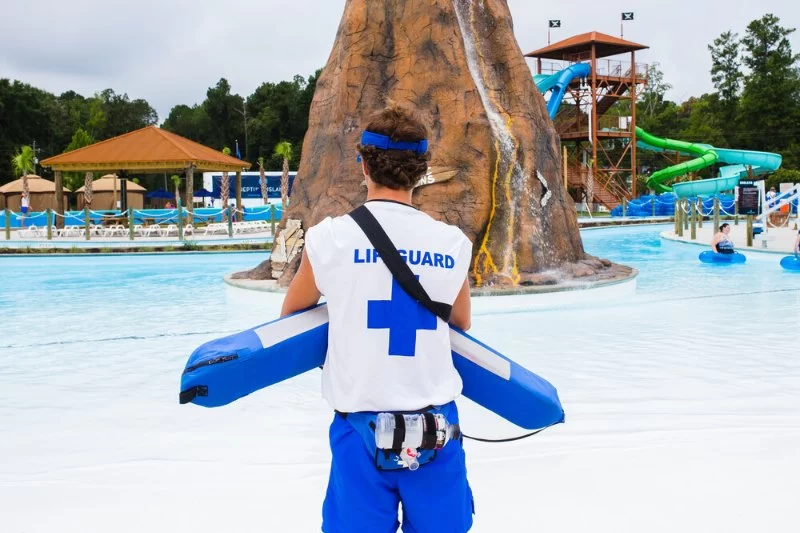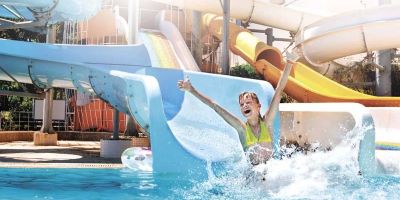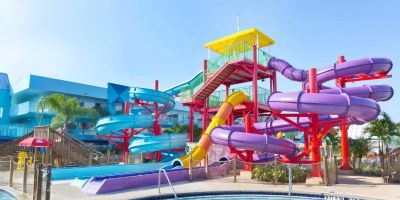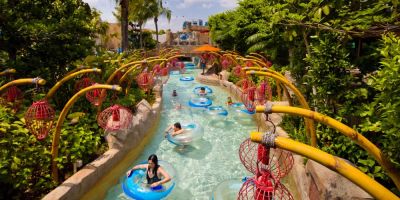
- why-water-parks-are-investing-in-lifeguard-training-programs
- what-to-expect-from-lifeguard-training-in-water-parks
- stories-from-trainees-and-lifeguard-leaders
- benefits-of-training-at-a-water-park-vs-traditional-centers
- how-to-find-water-parks-with-lifeguard-training-programs
1. Why Water Parks Are Investing in Lifeguard Training Programs
In recent years, safety standards in aquatic attractions have evolved significantly. More water parks across the country are now integrating formal lifeguard training programs into their operations—not just as a requirement, but as a core value. These water parks with lifeguard training programs are leading the charge in shaping not only safe recreational environments, but also future emergency responders.
As foot traffic increases in summer months, these parks understand that trained and certified lifeguards are the first and most effective line of defense against water-related incidents. And by training staff internally, parks can ensure that their lifeguards are not only certified but also highly familiar with the unique layout, flow, and equipment of the specific venue.

Sun-N-Fun Lagoon
15000 Livingston Rd, Naples, FL 34109, USA
2. What to Expect from Lifeguard Training in Water Parks
2.1 Rigorous Water Safety Curriculum
A reputable lifeguard training program inside a water park typically follows nationally recognized standards such as those set by the American Red Cross or Ellis & Associates. Trainees go through CPR, AED, and first aid certification, as well as specialized rescue techniques for water slides, wave pools, and lazy rivers. These elements make the program distinct from pool-only training.

Disney's Blizzard Beach Water Park
Bay Lake, FL 32836, USA
2.2 Realistic Scenarios and Emergency Drills
Unlike traditional classroom settings, water parks offer hands-on environments that mimic real emergencies. Trainees practice in live settings with staged drills, such as spinal rescues from drop zones or handling panicked swimmers during wave surges. This builds rapid-response skills under pressure—something no textbook can teach.
2.3 Ongoing Evaluations and Re-certifications
Water parks often employ full-time safety managers who conduct surprise audits and monthly refreshers to keep skills sharp. Some even integrate virtual reality into training to simulate different crowd conditions and emergency complexities. The goal is not just certification—but long-term excellence.
3. Stories from Trainees and Lifeguard Leaders
3.1 A Teen’s First Job Becomes a Lifesaving Career
Jalen, a high school senior from Florida, joined a summer lifeguard program at a local water park for extra income. Within weeks, he had performed a real rescue of a young child caught in a wave pool current. “It changed me,” he said. “I realized I had the ability to protect others, and that’s something I want to do forever.” Jalen is now studying emergency medicine in college.
3.2 Lifeguard Supervisor’s Perspective on Team Readiness
Samantha, a lifeguard supervisor at a major park in California, shared, “When our team trains together, there’s a rhythm to how we operate. We know our zones, our signals, our strengths. That trust comes from being trained in the very water we guard every day. It’s not just a job—it’s a mission.”
4. Benefits of Training at a Water Park vs. Traditional Centers
4.1 Exposure to High-Intensity Environments
Lifeguards trained in water parks face far more complex challenges than those trained in standard pools. They handle large volumes of guests, unpredictable behavior from thrill-seekers, and unique obstacles like flotation devices or crowded stairwells. This experience equips them for diverse rescue scenarios—even beyond water parks.
4.2 Career Advancement and Certification Portability
Many water park programs not only certify lifeguards but also prepare them for supervisory roles, customer service, and even emergency planning. These skills are transferable to municipal pools, cruise ships, and emergency response teams. Some parks even offer cross-training in areas like hospitality and operations, making lifeguarding a starting point for broader careers.
4.3 Paid Training and Perks
Unlike many external training programs that charge fees, several parks offer paid training with guaranteed employment upon completion. Trainees often receive uniforms, meals, and access to facilities. It’s a valuable opportunity for students or those entering the job market for the first time.
5. How to Find Water Parks with Lifeguard Training Programs
If you're interested in pursuing lifeguarding or enrolling your teen in a meaningful summer program, search for water parks with lifeguard training programs in your region. One of the best ways to start is by visiting trusted directories like Water Park, where you can explore parks that offer certified training programs, competitive benefits, and great workplace cultures.
Whether you’re looking for a serious career entry or a transformative summer experience, water parks that train lifeguards do more than offer thrill rides—they build safety, leadership, and lifelong confidence. From in-depth certification to real rescue scenarios, these programs prepare individuals not just to guard pools, but to make a difference.










